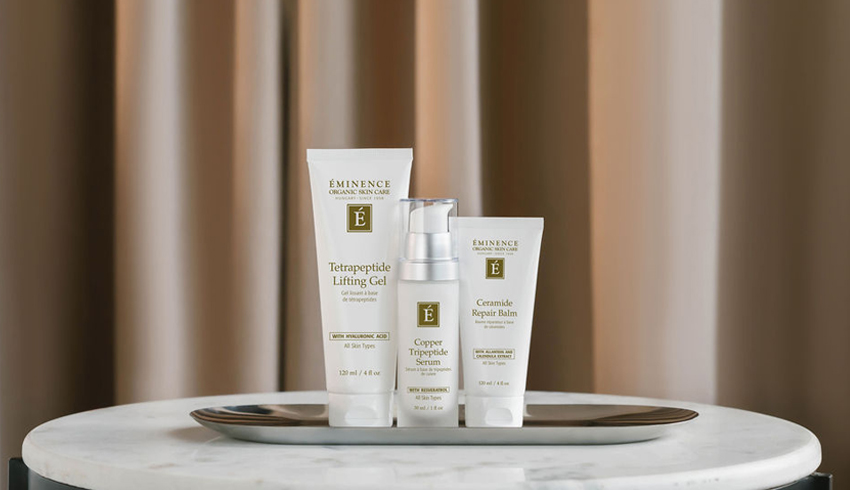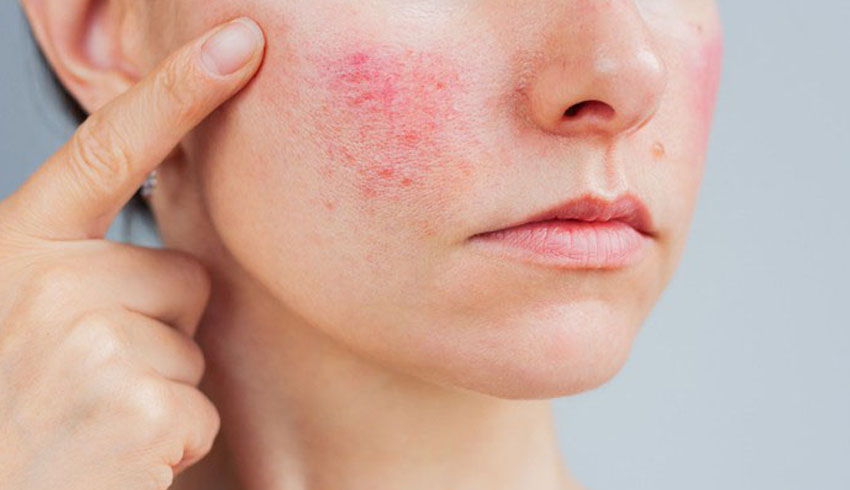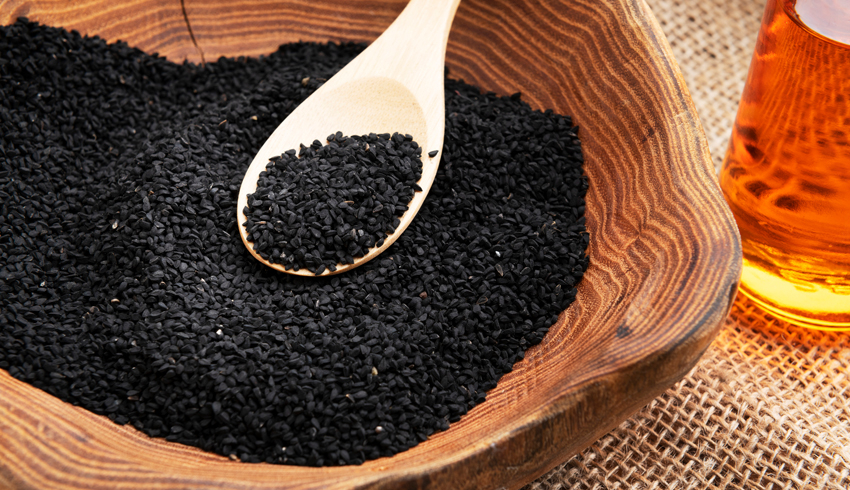
Love being the first to know about new trends? Then you’ll want to know about black seed oil. While not a new ingredient, black seed oil, also known as black cumin seed oil, has recently become a highly sought-after ingredient in skin care — and for good reason.
This ancient herbal oil, which graced Cleopatra's skin, has been traditionally used across the Middle East, Africa and Asia. Now, it's gaining global recognition for its remarkable benefits for the skin.
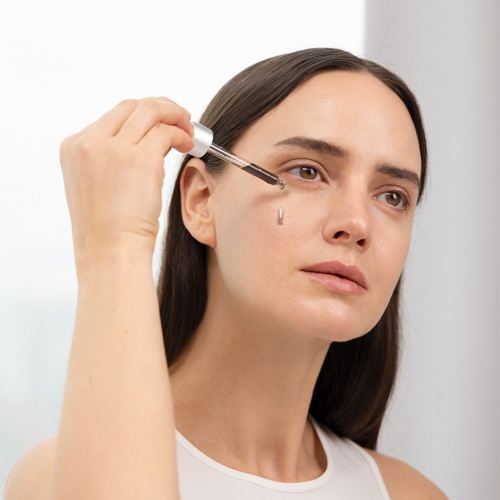
What Is Black Seed Oil?
Black seed, an annual flowering plant, originates from Western Asia and parts of Europe (mainly Bulgaria and Romania). Ancient civilizations, including those of Egypt and Mesopotamia, valued black seed for its versatility, using it not only in cuisine but also for its medicinal properties. The real magic lies within its fruit, which houses numerous small, black, triangular seeds that contain powerhouse nutrients, such as linoleic acid, oleic acid and thymoquinone. Packed with antioxidants, antibacterial properties and omega fatty acids, black seed oil can be used to fight acne and reduce clogged pores as well as a source of hydration. Let's delve into the specific beauty benefits of black seed and how its oil can be a transformative element in your skin care routine.
Beauty Benefits of Black Seed Oil
Worried about clogged pores? While some oils have a reputation for making congestion worse, there’s no need to stress with black seed oil. Thanks to its antibacterial and anti-inflammatory properties, black seed oil can clear symptoms associated with clogged pores — think excessive oil production and blemish formation. Azadeh Shirazi, M.D., a board-certified dermatologist tells Forbes that black seed oil can potentially alleviate symptoms of skin conditions such as psoriasis, eczema, vitiligo and acne. Black seed oil is also renowned for its benefits for your hair and scalp health. The phytochemicals in black seed oil reinforce hair strands from the roots to the tips, reducing breakage and split ends, while also providing hydration to revitalize dry and brittle hair.
To understand the wizardry of black seed, we should look at its core components. The two most prominent are linoleic acid and thymoquinone. Linoleic acid, an omega-6 fatty acid, reduces excess sebum production that can lead to acne, possibly owing to its antimicrobial and anti-inflammatory qualities. Meanwhile, thymoquinone takes on the role of a guardian against blemishes, providing a preventive measure for clearer skin. Thymoquinone is known for its antioxidant, antimicrobial and anti-inflammatory properties, which bolsters the oil's capability for reducing the appearance of clogged pores. Together, these components help to tackle the look of clogged pores and reduce their formation.
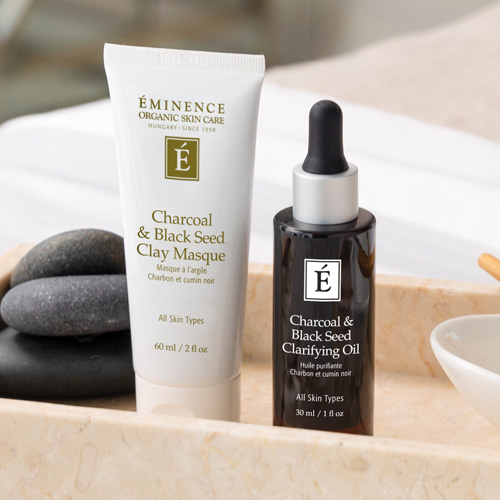
Health Benefits of Black Seed Oil
While there is limited research on the health impacts of black seed oil, existing studies suggest it might have beneficial effects. The following are some notable insights from the current research, according to Healthline:
- Enhances wound healing
- Supports hair health maintenance
- Aids in acne reduction
- Assists in reducing inflammation
- Improves blood sugar management
- Contributes to vitiligo treatment
- Alleviates symptoms of eczema
- Assists in psoriasis treatment
- Lowers the risk of metabolic syndrome
With these potential health impacts of black seed oil in mind, let's explore how you can effectively integrate it into your skin care routine.
How To Use Black Seed in Your Skin Care Routine
Now that you know the benefits of using black seed oil, here are some tips for incorporating black seed oil into your routine:
- Patch Test First: Before applying black seed oil to your face or body, do a patch test on a small area of skin.
- Use To Treat Your Scalp: You can also apply black seed oil to your scalp before shampooing to nourish your scalp and promote healthy hair growth.
- Dilute The Oil: If you’re using black seed oil directly, consider diluting it with a carrier oil like coconut, jojoba, or sweet almond oil, especially if you have sensitive skin.
- Dab Blemishes With A Cotton Swab: Due to its antimicrobial properties, black seed oil can be dabbed onto acne spots with a cotton swab to help reduce inflammation and clear up blemishes. Please consult your dermatologist before applying this oil to your skin.
- If You Have Skin Conditions: Similarly, if you have conditions like eczema or psoriasis, please consult your dermatologist before applying this oil to your skin.
Supplements: How Much Black Seed Oil Should I Take?
Doing a patch test for new skin care products is sufficient for most, but when it comes to ingesting black seed oil, we recommend consulting a doctor before starting any supplement to confirm that it's suitable for your personal health needs.
Typically, adults can consume 1 to 2.5 grams of black seed oil orally each day for a period ranging from four to 12 weeks. Alternatively, black seed powder is commonly taken at doses of one to two grams daily for eight to 12 weeks. To establish the most effective dosage for a particular health condition, it's advised to speak with a healthcare professional.
Is Black Seed Right For You?
With its historical accolades and contemporary acclaim, black seed offers an alluring proposition. While black seed is generally considered safe and well-tolerated, it's essential to be mindful of potential allergies, either when ingesting it or when applied topically. For those who are pregnant, breastfeeding or on medication, it’s vital to seek medical advice before incorporating black seed into your routine.
Are you looking to improve congested skin or change up your skin care routine with natural products? Visit your local Eminence Organics Spa Partner to find out how.


